- Home
- Margaret Atwood
Selected Poems II (1976-1986)
Selected Poems II (1976-1986) Read online
Table of Contents
Title Page
Table of Contents
Copyright
From TWO-HEADED POEMS (1978)
A Paper Bag
The Woman Who Could Not Live With Her Faulty Heart
Five Poems for Dolls
Five Poems for Grandmothers
Marrying the Hangman
Four Small Elegies
Two-Headed Poems
The Bus to Alliston, Ontario
The Woman Makes Peace With Her Faulty Heart
Solstice Poem
Marsh, Hawk
A Red Shirt
Night Poem
All Bread
You Begin
From TRUE STORIES (1981)
True Stories
Landcrab I
Landcrab II
Postcard
Nothing
From NOTES TOWARDS A POEM THAT CAN NEVER BE WRITTEN
A Conversation
Flying Inside Your Own Body
Torture
A Women's Issue
Christmas Carols
Notes Towards a Poem that Can Never Be Written
Vultures
Sunset II
Variation on the Word Sleep
Mushrooms
Out
Blue Dwarfs
Last Day
From INTERLUNAR (1984)
From SNAKE POEMS
Snake Woman
Bad Mouth
Eating Snake
Metempsychosis
Psalm to Snake
Quattrocento
After Heraclitus
From INTERLUNAR
Bedside
Precognition
Keep
Anchorage
Georgia Beach
A Sunday Drive
Orpheus (1)
Eurydice
The Robber Bridegroom
Letter from Persephone
No Name
Orpheus (2)
The Words Continue Their Journey
Heart Test With an Echo Chamber
A Boat
Interlunar
NEW POEMS (1985–1986)
Aging Female Poet Sits on the Balcony
Porcupine Tree
Aging Female Poet Reads Little Magazines
Porcupine Meditation
Aging Female Poet on Laundry Day
Nightshade on the Way to School
Mothers
She
Werewolf Movies
How to Tell One Country From Another
Machine. Gun. Nest.
The Rest
Another Elegy
Galiano Coast: Four Entrances
Squaw Lilies: Some Notes
Three Praises
Not the Moon
About the Author
Copyright © 1987 by Margaret Atwood
All rights reserved
For information about permission to reproduce selections from this book, write to Permissions, Houghton Mifflin Harcourt Publishing Company, 215 Park Avenue South, New York, New York 10003.
www.hmhbooks.com
The Library of Congress has cataloged the print edition as follows:
Atwood, Margaret Eleanor, date.
Selected poems II.
I. Title.
PR9199.3A8A17 1987 811'.54 87-3861
ISBN 978-0-395-45406-0
eISBN 978-0-544-14701-0
v1.1212
This book was published in a different form by Oxford University Press (Canada) in 1986.
The poems reprinted in this collection are from Two-Headed Poems, True Stories, and lnterlunar, published by Oxford University Press (Canada). New poems have appeared in The Malahat Review, Exile, The Memphis State Review, and Poetry Australia.
From TWO-HEADED POEMS (1978)
A Paper Bag
I make my head, as I used to,
out of a paper bag,
pull it down to the collarbone,
draw eyes around my eyes,
with purple and green
spikes to show surprise,
a thumb-shaped nose,
a mouth around my mouth
penciled by touch, then colored in
flat red.
With this new head, the body now
stretched like a stocking and exhausted could
dance again; if I made a
tongue I could sing.
An old sheet and it's Halloween;
but why is it worse or more
frightening, this pinface
head of square hair and no chin?
Like an idiot, it has no past
and is always entering the future
through its slots of eyes, purblind
and groping with its thick smile,
a tentacle of perpetual joy.
Paper head, I prefer you
because of your emptiness;
from within you any
word could still be said.
With you I could have
more than one skin,
a blank interior, a repertoire
of untold stories,
a fresh beginning.
The Woman Who Could Not Live With Her Faulty Heart
I do not mean the symbol
of love, a candy shape
to decorate cakes with,
the heart that is supposed
to belong or break;
I mean this lump of muscle
that contracts like a flayed biceps,
purple-blue, with its skin of suet,
its skin of gristle, this isolate,
this caved hermit, unshelled
turtle, this one lungful of blood,
no happy plateful.
All hearts float in their own
deep oceans of no light,
wetblack and glimmering,
their four mouths gulping like fish.
Hearts are said to pound:
this is to be expected, the heart's
regular struggle against being drowned.
But most hearts say, I want, I want,
I want, I want. My heart
is more duplicitous,
though no twin as I once thought.
It says, I want, I don't want, I
want, and then a pause.
It forces me to listen,
and at night it is the infra-red
third eye that remains open
while the other two are sleeping
but refuses to say what it has seen.
It is a constant pestering
in my ears, a caught moth, limping drum,
a child's fist beating
itself against the bedsprings:
I want, I don't want.
How can one live with such a heart?
Long ago I gave up singing
to it, it will never be satisfied or lulled.
One night I will say to it:
Heart, be still,
and it will.
Five Poems for Dolls
i
Behind glass in Mexico
this clay doll draws
its lips back in a snarl;
despite its beautiful dusty shawl,
it wishes to be dangerous.
ii
See how the dolls resent us,
with their bulging foreheads
and minimal chins, their flat bodies
never allowed to bulb and swell,
their faces of little thugs.
This is not a smile,
this glossy mouth, two stunted teeth;
the dolls gaze at us
with the filmed eyes of killers.
iii
There have always been dolls
as long as
there have been people.
In the trash heaps and abandoned temples
the dolls pile up;
the sea is filling with them.
What causes them?
Or are they gods, causeless,
something to talk to
when you have to talk,
something to throw against the wall?
A doll is a witness
who cannot die,
with a doll you are never alone.
On the long journey under the earth,
in the boat with two prows,
there were always dolls.
iv
Or did we make them
because we needed to love someone
and could not love each other?
It was love, after all,
that rubbed the skins from their gray cheeks,
crippled their fingers,
snarled their hair, brown or dull gold.
Hate would merely have smashed them.
You change, but the doll
I made of you lives on,
a white body leaning
in a sunlit window, the features
wearing away with time,
frozen in the gaunt pose
of a single day,
holding in its plaster hand
your doll of me.
v
Or: all dolls come
from the land of the unborn,
the almost-born; each
doll is a future
dead at the roots,
a voice heard only
on breathless nights,
a desolate white memento.
Or: these are the lost children,
those who have died or thickened
to full growth and gone away.
The dolls are their souls or cast skins
which line the shelves of our bedrooms
and museums, disguised as outmoded toys,
images of our sorrow,
shedding around themselves
five inches of limbo.
Five Poems for Grandmothers
i
In the house on the cliff
by the ocean, there is still a shell
bigger and lighter than your head, though now
you can hardly lift it.
It was once filled with whispers;
it was once a horn
you could blow like a shaman
conjuring the year,
and your children would come running.
You've forgotten you did that,
you've forgotten the names of the children
who in any case no longer run,
and the ocean has retreated,
leaving a difficult beach of gray stones
you are afraid to walk on.
The shell is now a cave
which opens for you alone.
It is still filled with whispers
which escape into the room,
even though you turn it mouth down.
This is your house, this is the picture
of your misty husband, these are your children, webbed
and doubled. This is the shell,
which is hard, which is still there,
solid under the hand, which mourns, which offers
itself, a narrow journey
along its hallways of cold pearl
down the cliff into the sea.
ii
It is not the things themselves
that are lost, but their use and handling.
The ladder first; the beach;
the storm windows, the carpets;
The dishes, washed daily
for so many years the pattern
has faded; the floor, the stairs, your own
arms and feet whose work
you thought defined you;
The hairbrush, the oil stove
with its many failures,
the apple tree and the barrels
in the cellar for the apples,
the flesh of apples; the judging
of the flesh, the recipes
in tiny brownish writing
with the names of those who passed them
from hand to hand: Gladys,
Lorna, Winnie, Jean.
If you could only have them back
or remember who they were.
iii
How little I know
about you finally:
The time you stood
in the nineteenth century
on Yonge Street, a thousand
miles from home, with a brown purse
and a man stole it.
Six children, five who lived.
She never said anything
about those births and the one death;
her mouth closed on a pain
that could neither be told nor ignored.
She used to have such a sense of fun.
Now girls, she would say
when we would tease her.
Her anger though, why
that would curl your hair,
though she never swore.
The worst thing she could say was:
Don't be foolish.
At eighty she had two teeth pulled out
and walked the four miles home
in the noon sun, placing her feet
in her own hunched shadow.
The bibbed print aprons, the shock
of the red lace dress, the pin
I found at six in your second drawer,
made of white beads, the shape of a star.
What did we ever talk about
but food, health and the weather?
Sons branch out, but
one woman leads to another.
Finally I know you
through your daughters,
my mother, her sisters,
and through myself:
Is this you, this edgy joke
I make, are these your long fingers,
your hair of an untidy bird,
is this your outraged
eye, this grip
that will not give up?
iv
Some kind of ritual
for your dwindling,
some kind of dragon, small,
benign and wooden
with two mouths to catch your soul
because it is wandering
like a lost child, lift it back safely.
But we have nothing; we say,
How is she?
Not so good, we answer,
though some days she's fine.
On other days you walk through
the door of the room in the house
where you've lived for seventy years
and find yourself in a hallway
you know you have never seen before.
Midnight, they found her
opening and dosing the door
of the refrigerator:
vistas of day-old vegetables, the used bone
of an animal, and beyond that
the white ice road that leads north.
They said, Mother,
what are you doing here?
Nothing is finished
or put away, she said.
I don't know where I am.
Against the disappearance
of outlines, against
the disappearance of sounds,
against the blurring of the ears
and eyes, against the small fears
of the very old, the fear
of mumbling, the fear of dying,
the fear of falling downstairs,
I make this charm
from nothing but paper; which is good
for exactly nothing.
v
Goodbye, mother
of my mother, old bone
tunnel through which I came.
You are sinking down into
your own veins, fingers
folding back into the hand,
day by day a slow retreat
behind
the disk of your face
which is hard and netted like an ancient plate.
You will flicker in these words
and in the words of others
for a while and then go out.
Even if I send them,
you will never get these letters.
Even if I see you again,
I will never see you again.
Marrying the Hangman
She has been condemned to death by hanging, A man may escape this death by becoming the hangman, a woman by marrying the hangman. But at the present time there is no hangman; thus there is no escape. There is only a death, indefinitely postponed. This is not fantasy, it is history.
***
To live in prison is to live without mirrors. To live without mirrors is to live without the self. She is living selflessly, she finds a hole in the stone wall and on the other side of the wall, a voice. The voice comes through darkness and has no face. This voice becomes her mirror.
***
In order to avoid her death, her particular death, with wrung neck and swollen tongue, she must marry the hangman. But there is no hangman, first she must create him, she must persuade this man at the end of the voice, this voice she has never seen and which has never seen her, this darkness, she must persuade him to renounce his face, exchange it for the impersonal mask of death, of official death which has eyes but no mouth, this mask of a dark leper. She must transform his hands so they will be willing to twist the rope around throats that have been singled out as hers was, throats other than hers. She must marry the hangman or no one, but that is not so bad. Who else is there to marry?

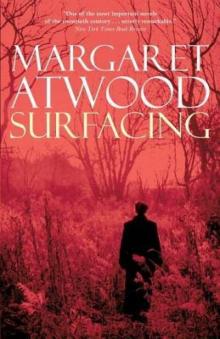 Surfacing
Surfacing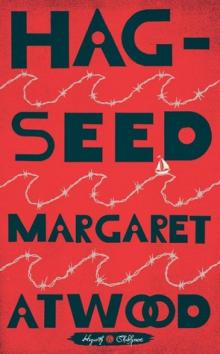 Hag-Seed
Hag-Seed Oryx and Crake
Oryx and Crake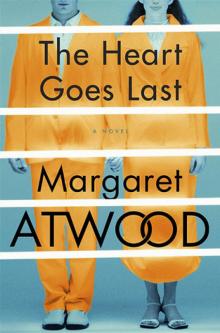 The Heart Goes Last
The Heart Goes Last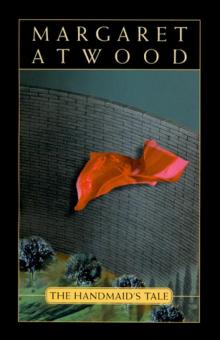 The Handmaid's Tale
The Handmaid's Tale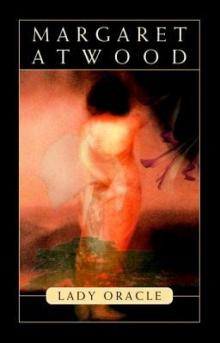 Lady Oracle
Lady Oracle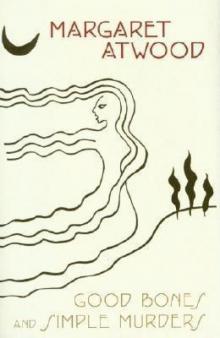 Good Bones and Simple Murders
Good Bones and Simple Murders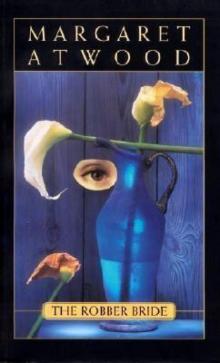 The Robber Bride
The Robber Bride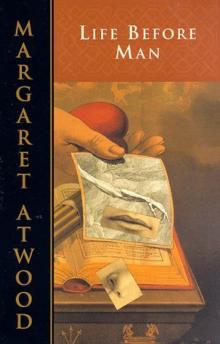 Life Before Man
Life Before Man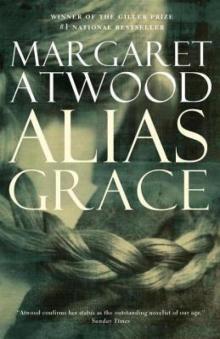 Alias Grace
Alias Grace The Blind Assassin
The Blind Assassin Cat's Eye
Cat's Eye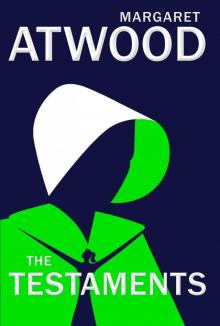 The Testaments
The Testaments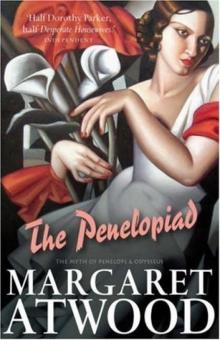 The Penelopiad
The Penelopiad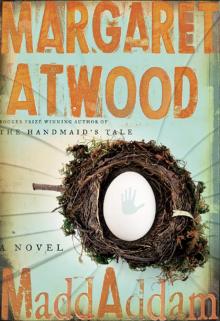 MaddAddam
MaddAddam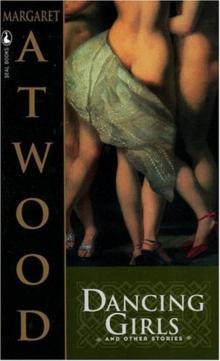 Dancing Girls & Other Stories
Dancing Girls & Other Stories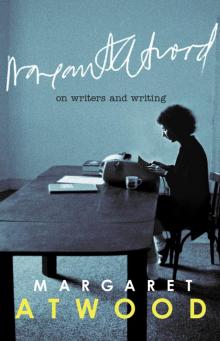 On Writers and Writing
On Writers and Writing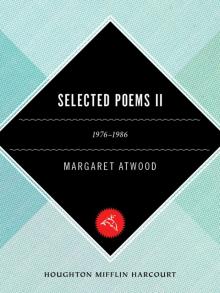 Selected Poems II (1976-1986)
Selected Poems II (1976-1986)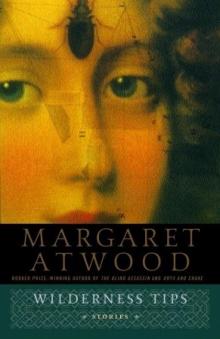 Wilderness Tips
Wilderness Tips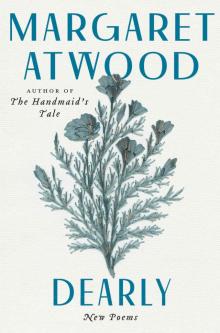 Dearly
Dearly The Tent
The Tent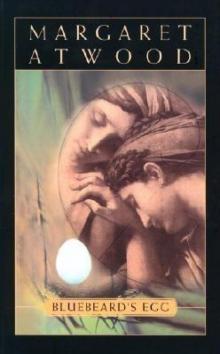 Bluebeard's Egg
Bluebeard's Egg The Edible Woman
The Edible Woman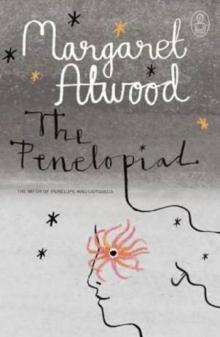 The Penelopiad: The Myth of Penelope and Odysseus
The Penelopiad: The Myth of Penelope and Odysseus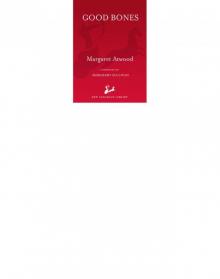 Good Bones
Good Bones I Dream of Zenia with the Bright Red Teeth
I Dream of Zenia with the Bright Red Teeth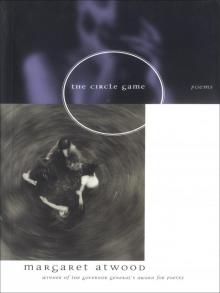 Circle Game
Circle Game Choke Collar: Positron, Episode Two
Choke Collar: Positron, Episode Two Stone Mattress: Nine Tales
Stone Mattress: Nine Tales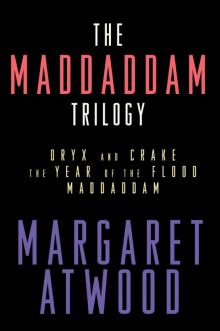 The MaddAddam Trilogy
The MaddAddam Trilogy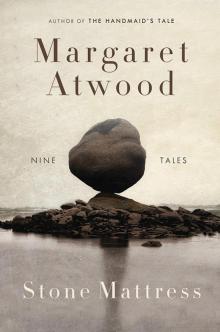 Stone Mattress
Stone Mattress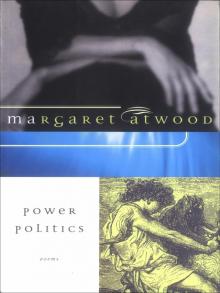 Power Politics
Power Politics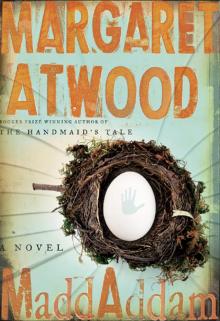 MaddAddam 03 - MaddAddam
MaddAddam 03 - MaddAddam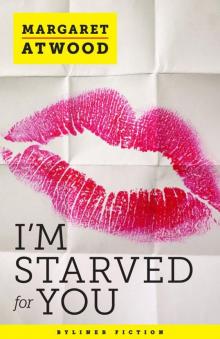 I’m Starved for You (Kindle Single)
I’m Starved for You (Kindle Single) Murder in the Dark
Murder in the Dark In Other Worlds
In Other Worlds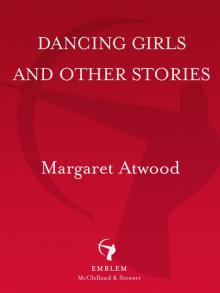 Dancing Girls
Dancing Girls Moral Disorder
Moral Disorder